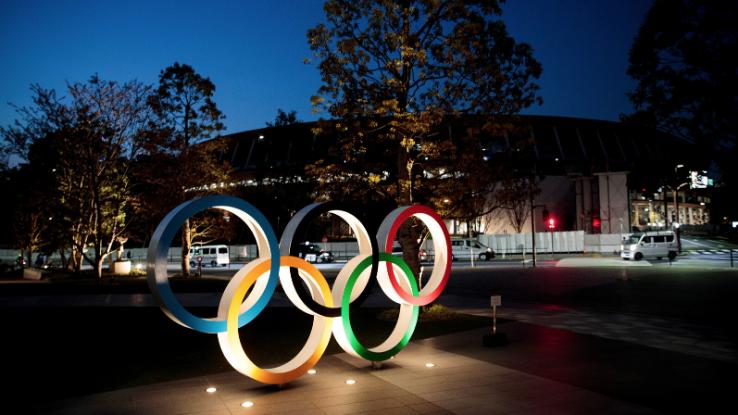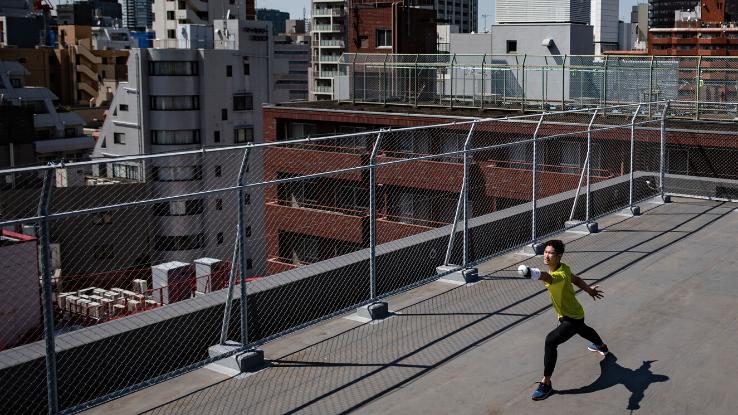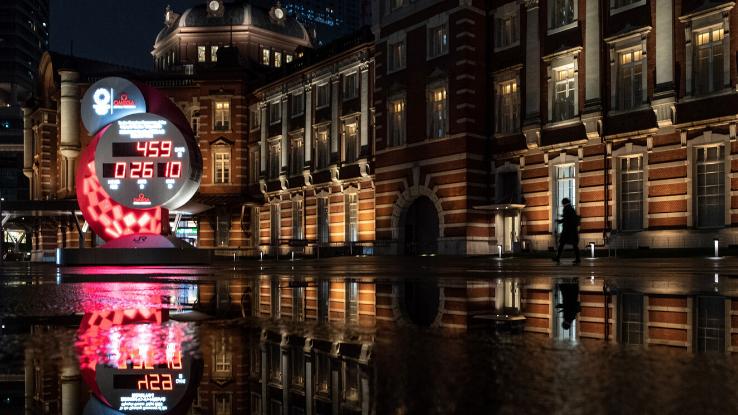Tokyo 2020 During 2021: How Postponing the Olympics Impacted Athletes, the Host City & More

Since the first modern Olympic Games, which were held in Athens, Greece, in 1896, the Summer Games have only been canceled three times — once in 1916 during World War I and twice in the 1940s during World War II. Amid the ongoing novel coronavirus pandemic, the International Olympic Committee (IOC) and the Japanese government announced the postponement of the Summer Games back in March — not a cancellation but still something unprecedented.
While the decision to move the Games is, undoubtedly, a wise one, there will also be some far-reaching consequences, not just for the Japanese economy and sponsors, but for the athletes who trained so hard for the chance to compete — and, most importantly, Japanese citizens, 80% of whom called for the Olympics to be outright canceled. Here, we’re taking a look back at 2020 and how the postponement marked a huge moment in Olympics history.
Editor’s Note: For the most up-to-date coverage, please check out our Tokyo 2020 Olympics: From Postponement to Calls for Cancellation, Here’s Everything You Need to Know.
How Did the Postponement Compare to Olympics of the Past?
In the photograph below, Japanese fencer Ryo Miyake trains with a foil in downtown Tokyo, despite the postponement of the 2020 Games. In between training sessions, the would-be Olympian hops on his bicycle and delivers food for Tokyo’s UberEats. Without a doubt, it’s not the pre-Olympic life Miyake imagined for himself. In a pandemic-free world, with the Games a month and a half off, he’d probably be dedicating all his time and energy to fencing. Like Miyake, so many athletes from around the world have seen their Olympic dreams derailed. Sure, there’s the chance to go for gold next summer, but for many, that’s easier said than done.

“I’ve had so many calls with athletes who have been in tears trying to train for their ultimate dream but not wanting to jeopardize their health,” American hurdler Lolo Jones wrote on Twitter. “This [postponement] was the right thing to do. May the world heal.” As many will recall, the 2016 Summer Olympics, which were held in Rio de Janeiro, Brazil, were plagued by concerns over the Zika virus, a mosquito-borne virus. Despite being found in more than 50 countries, Zika disproportionately — and severely — impacts Brazil and the folks who live here, so much so that a Canadian health specialist called for a postponement of the 2016 Games.
While the Games went on as scheduled, several high-profile athletes, including pro golfers Rory McIlroy and Jason Day, withdrew from Rio 2016. In comparison to Olympic boycotts of the past — which have seen larger swathes of athletes as well as entire nations pull out of the Games — these withdrawals weren’t particularly disruptive. Although threatening, the Zika virus never evolved into a full-blown pandemic — and apparently the fear of that happening wasn’t looming too large in IOC members’ minds.
All of that said, the COVID-19 pandemic is a different beast entirely. Many countries have shut down completely over the course of the pandemic, and the worldwide death toll has climbed to more than 329,000 as of May 21, 2020 (via Worldometer).
How Did Postponing the Olympics Impact Athletes?
News outlets have deemed the postponement of the Tokyo 2020 Games to be a logistical nightmare. So much time goes into planning the schedule of events, coordinating the creation and revamping of infrastructure, and marketing the Games and making merchandise and other time-sensitive materials. And, of course, all those factors also have an astronomical price-tag for the host city. Notoriously, very few hosts actually profit from holding the Games.

In the last 15 years, millions of spend has easily turned into several billion, and every four years, the need to impress the world looms even larger. Beijing’s 2008 Games cost China a whopping $40 billion, bested only by Sochi 2014, which saw Russia spending roughly $51 billion to host. Needless to say, this off-field competition has led to staggering debt — not to mention slews of abandoned venues, the displacement of local residents and indigenous folks, and detrimental pollution. According to Business Insider, the current cost of the Tokyo Olympics ballooned to double that of the official $12.6 billion planned cost, and the postponement could add at least another $2.7 billion to that steep total.
The costs, financial and otherwise, for the host country are clear, but what about the athletes? It seems like an understatement to say the postponement is sad, but it also seems as though many folks don’t realize that the Olympic postponement is much more than just a dream deferred for athletes. “As an Olympic athlete, you live your life in (four-year) cycles,” wrestler Jordan Burroughs told USA Today. “Everything we do is cyclical.” As the publication goes on to point out, all those “carefully crafted training programs [that were] to peak in July” have to be reassessed.
Some athletes who are on the verge of retiring age in their sport might not want to return next year — or the delay may cause their performances to suffer. After all, a lot can happen in a year, including unforeseen injuries. Moreover, with 33 sports in the Summer Olympiad, there are 33 international sports federations — not to mention national leagues and, you know, all of soccer — that need to revamp their schedules to work with the new 2021 Summer Games. For athletes, that amounts to added stress and some tough decisions.
Before the pandemic hit, a reported 57% of Olympic spots had been accounted for, but at the time of the postponement news, the IOC hadn’t clarified whether or not those athletes would automatically qualify for 2021. Obviously, athletes like American weightlifter Katherine Nye spoke out on Twitter and other platforms to voice their concerns — they more than earned those spots.
By April 2020, the IOC announced that athletes who qualified for the 2020 Games were in for 2021. Nonetheless, that doesn’t mean every eligible athlete will want to compete — or have the ability to compete — a full year later. “Athlete health is the guiding principle in the scheduling of any remaining Olympic qualification events,” the IOC said in a statement. “With the postponement of the Olympic Games Tokyo 2020 until 2021, the IOC has urged that any such events be confirmed only once the COVID-19 impacts can be assessed, allowing fair access and appropriate preparation for all competing athletes and teams.”
The rescheduled Olympics are slated to take place July 23 through August 8, 2021, in Tokyo, Japan — though many folks are calling for cancelation amid COVID-19 surges, the displacement of Japanese people, and other ongoing issues linked to the Games.





